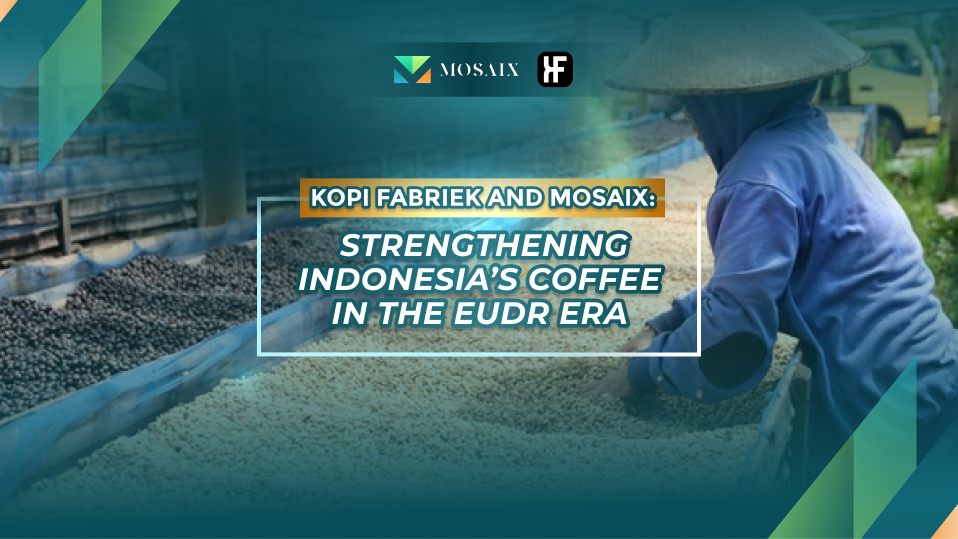The European Union Deforestation Regulation (EUDR) brings both opportunities and challenges for Indonesian coffee. On one hand, it opens doors for sustainably produced coffee to reach premium European markets. On the other, the strict requirements on traceability and land legality demand readiness across the entire supply chain, from exporters down to smallholder farmers.
Indonesia’s Coffee Export Trends
According to data from Statistics Indonesia (BPS) and the Customs Directorate (2014–2024), Indonesia’s coffee exports to Europe have shown dynamic fluctuations. The share of exports to Europe fell from about 60% at the start of the period to 44% in 2024, with sharp declines in 2018 and 2023.

Despite the drop in volume, export value per ton remained competitive, surging to USD 5,200/ton in 2024, nearly matching the global average of USD 5,250/ton. This indicates that even with lower volume, Indonesian coffee has maintained strong price competitiveness in the European market.
The Main Challenge: Traceability Down to the Farmer
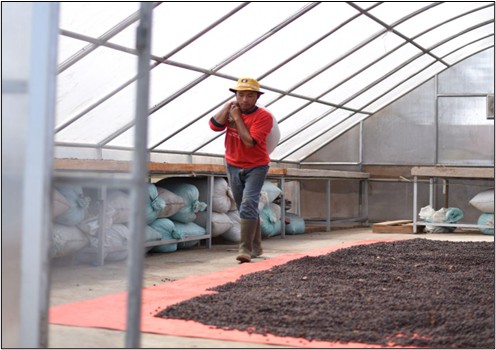
One of the toughest hurdles is ensuring traceability down to the farmer level. Many smallholders operate on fragmented plots of land, often with incomplete or inconsistent tenure documents. Aligning these farmer profiles with EUDR’s geolocation and due diligence requirements requires both technology and capacity building
Agriplot DDS: A Digital Compliance Solution
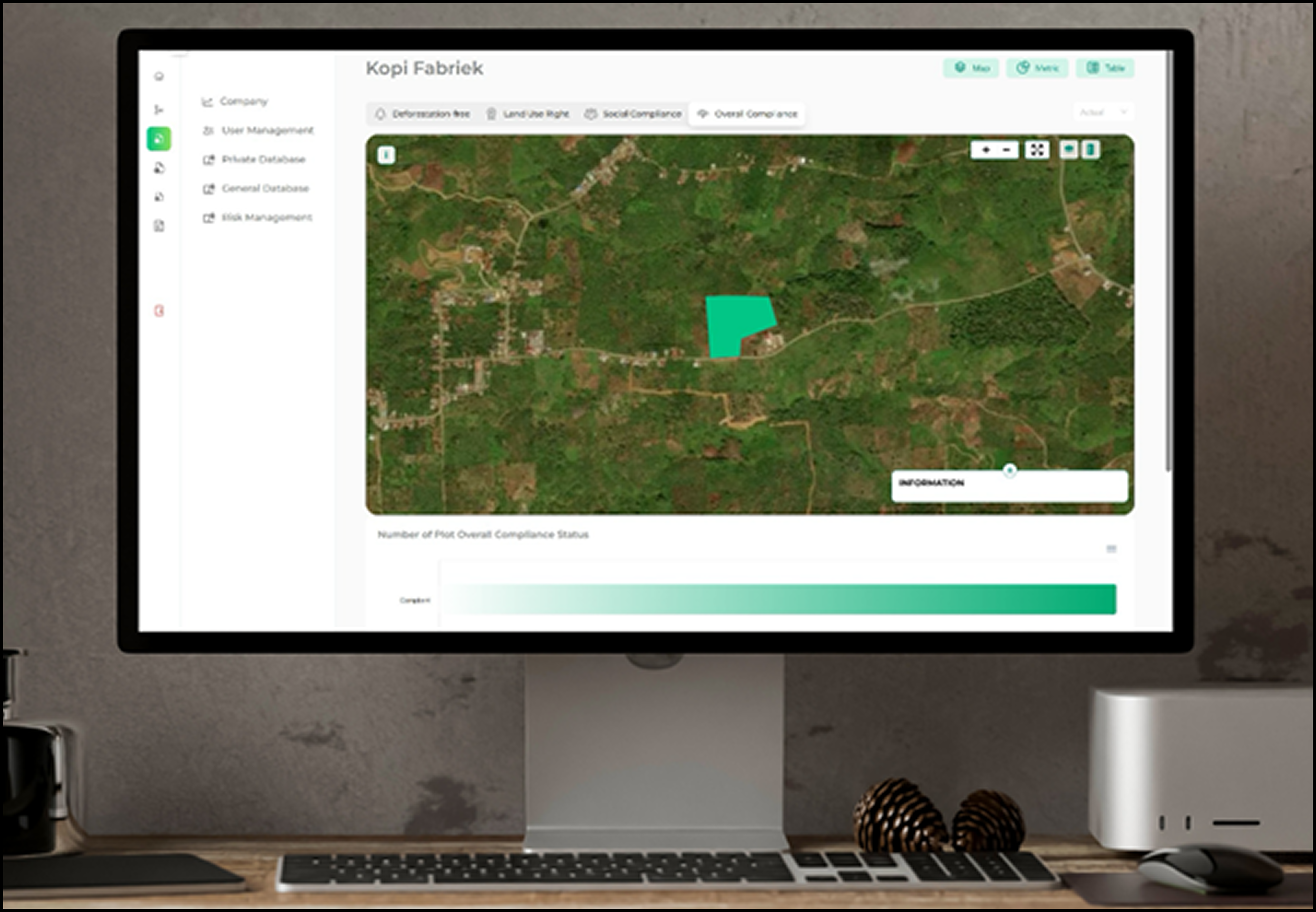
Through its partnership with MosaiX, Kopi Fabriek uses Agriplot DDS, a digital due diligence system that centralizes geolocation data, automates deforestation risk screening, and generates documentation aligned with EUDR standards.
For example, Agriplot DDS enabled automated farm polygon mapping overlaid with satellite data, allowing rapid verification that farms complied with the EUDR cut-off date. What was once a manual, resource-intensive process is now streamlined, reducing errors, saving time, and increasing buyer confidence.
Case Study: Hendra Maulizar & Gravfarm Sukaratu

Compliance Analysis Result

Two Kopi Fabriek suppliers illustrate the challenges on the ground:
- Hendra Maulizar (Central Aceh): Fully compliant with both legality and deforestation-free requirements. His land is classified as non-forest, perfectly aligned with EUDR.
- Gravfarm Sukaratu (Bandung): Some plantation areas overlap with protected forest. However, the land is managed through agroforestry, maintaining forest canopy and ecological functions, and thus considered deforestation-free.
This approach aligns with Indonesia’s Government Regulation (PP) No. 23/2021, which allows agroforestry in protected forests as long as ecological, social, and economic functions are preserved.
Farmers’ Response: From Hesitation to Opportunity
As with any new regulation, there were initial concerns among farmers, especially around data sharing and land ownership. Yet, through transparent communication, more farmers have come to see compliance as a pathway to greater market access and long-term income stability.
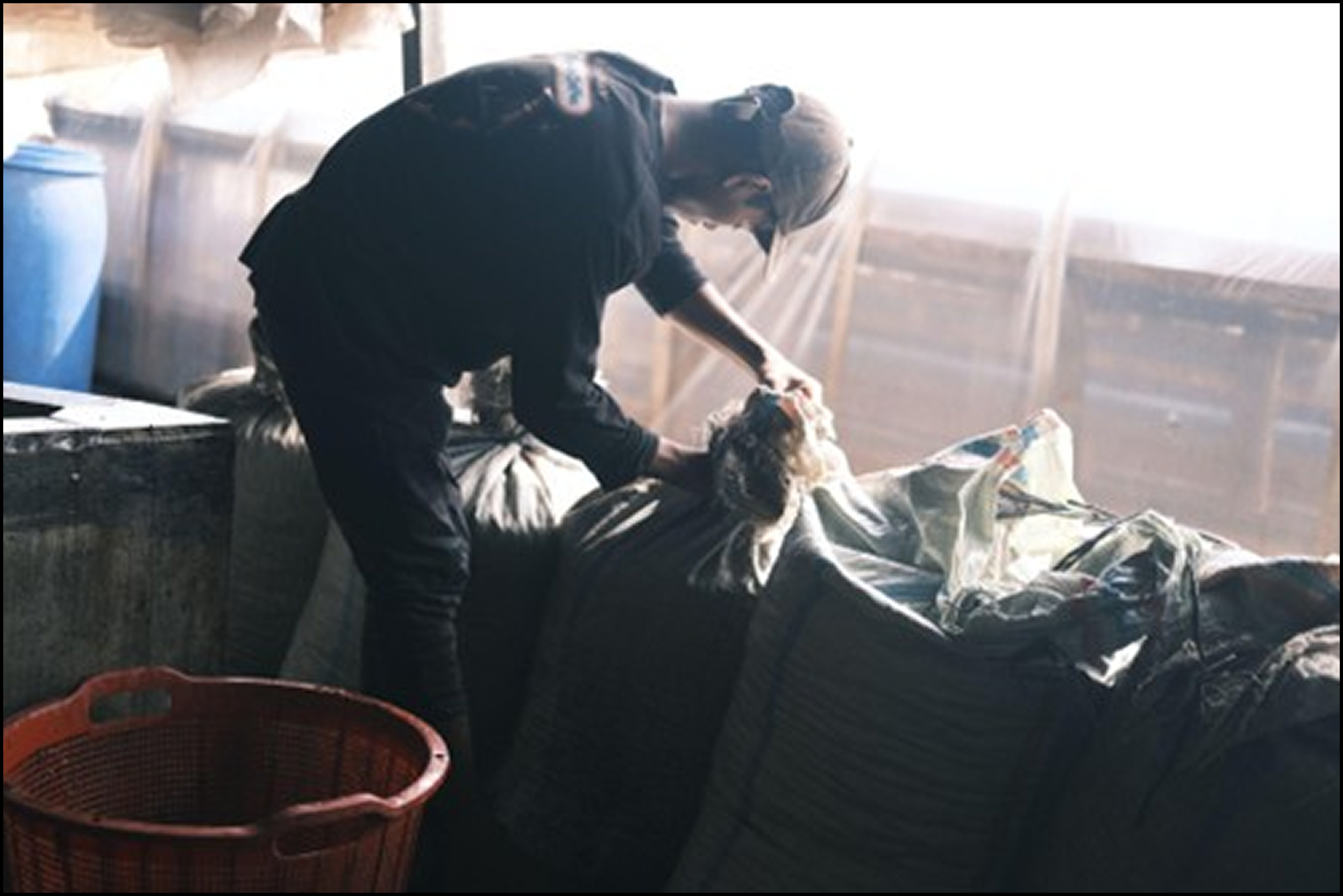
To further support compliance with the EUDR, farmers in customary land areas have been encouraged to collaborate through the issuance of farmer cards. These cards serve as an official identity that records land ownership, geolocation, and the legal status of customary lands. With farmer cards in place, verification and supply chain traceability become clearer and more transparent, ensuring that farmers in customary areas can access global markets without losing recognition of their land rights.
Kopi Fabriek has supported this transition by running consultation programs on EUDR requirements, assisting farmers in mapping their plots, and facilitating access to digital tools like Agriplot DDS. Working closely with cooperatives, Kopi Fabriek ensures consolidated farmer data, clear guidance on required documentation, and, most importantly, that farmers feel ownership over the process rather than exclusion.
Kopi Fabriek’s Long-Term Vision
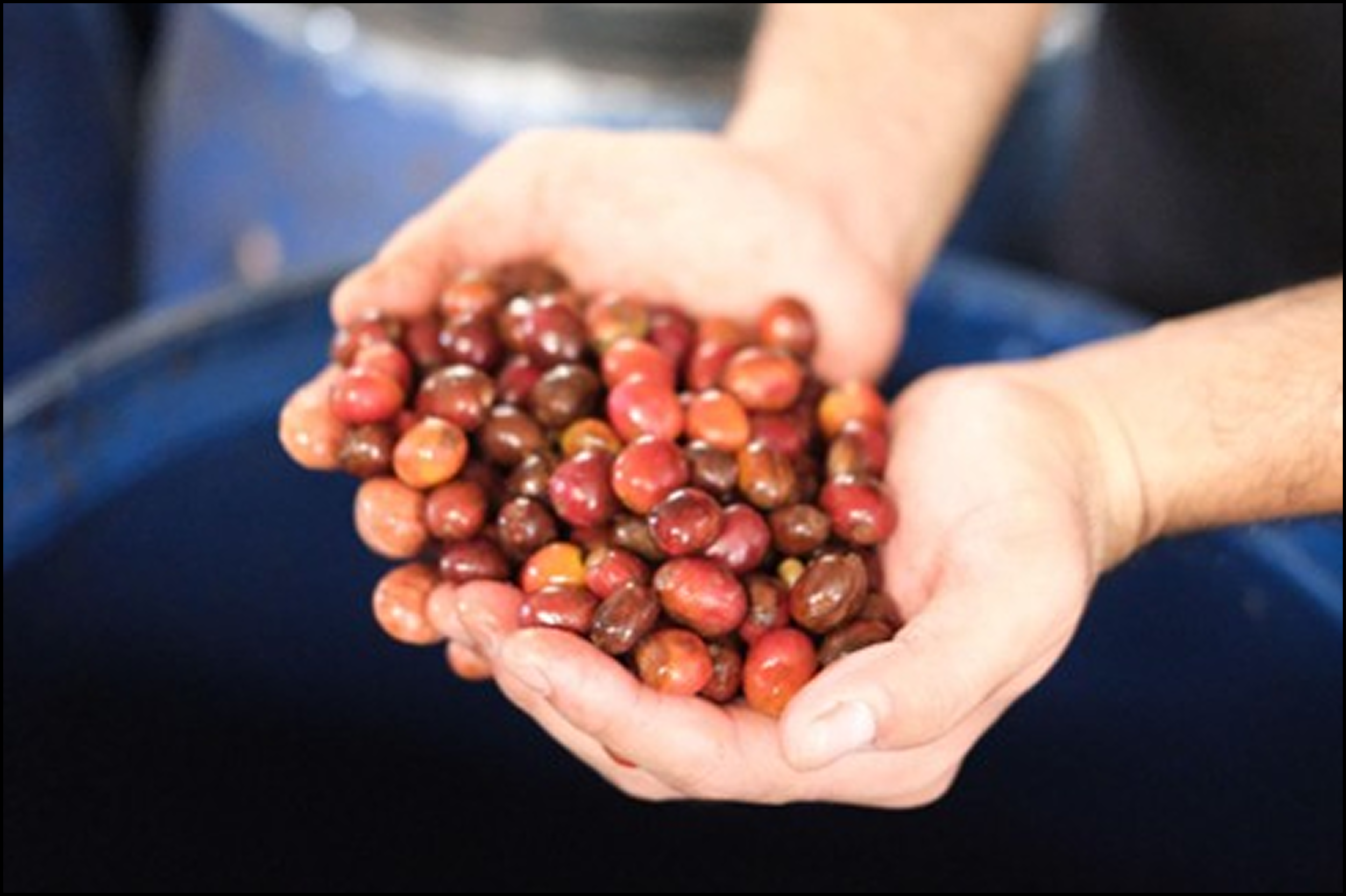
Looking ahead, Kopi Fabriek’s vision is to position Indonesian coffee as a leader in sustainable and transparent sourcing. The strategy combines technology integration, farmer capacity building, and strong partnerships that go beyond compliance.
“For us, EUDR is not just an obligation but an opportunity to prove that sustainability and competitiveness can go hand in hand,” Kopi Fabriek emphasizes. “By preserving the unique identity of Indonesian coffee while meeting global standards, we aim to serve as a model for inclusive, sustainable supply chains.”
